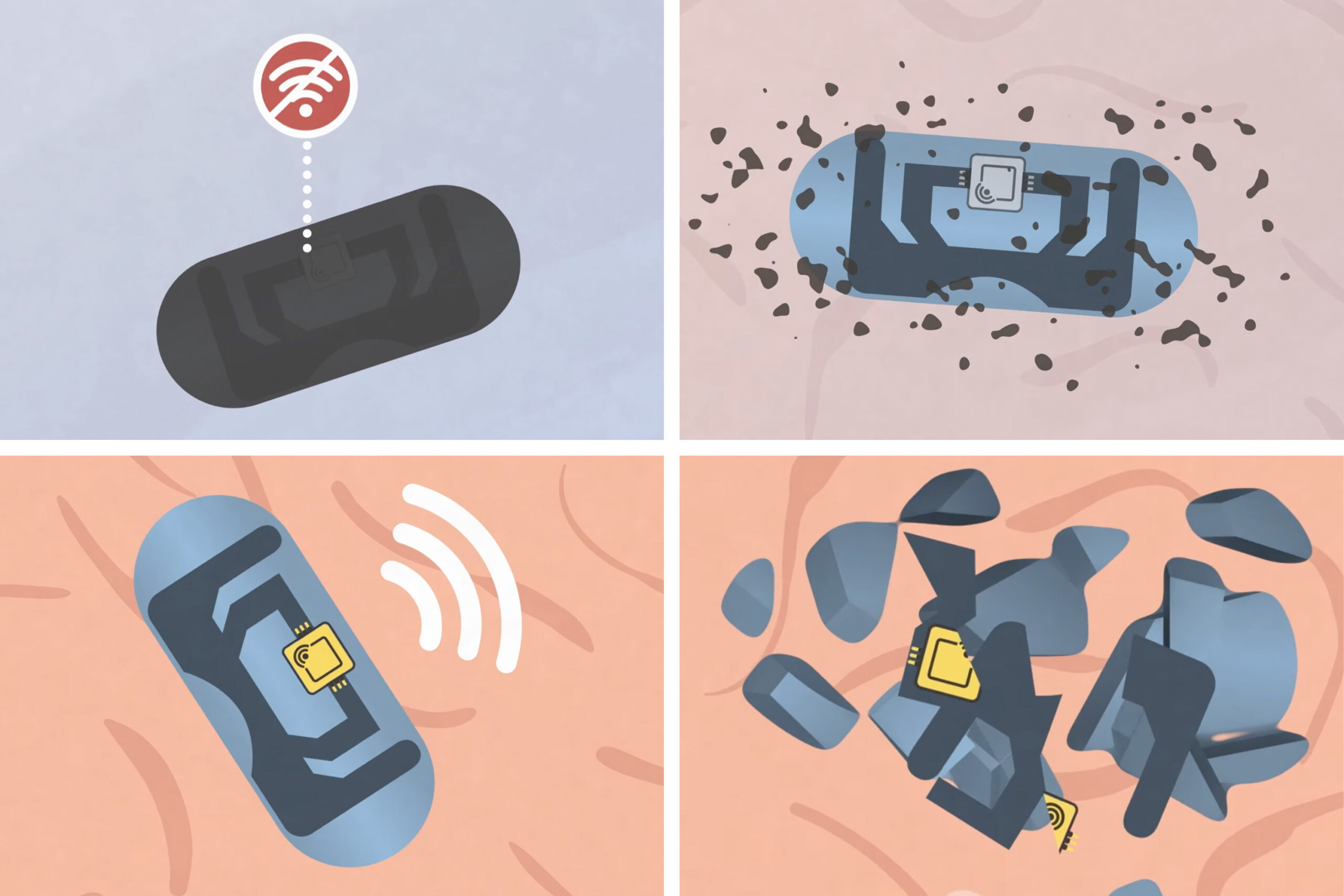In an advance that could help ensure people are taking their medication on schedule, MIT engineers have designed a pill that can report when it has been swallowed.
The new reporting system, which can be incorporated into…

In an advance that could help ensure people are taking their medication on schedule, MIT engineers have designed a pill that can report when it has been swallowed.
The new reporting system, which can be incorporated into…